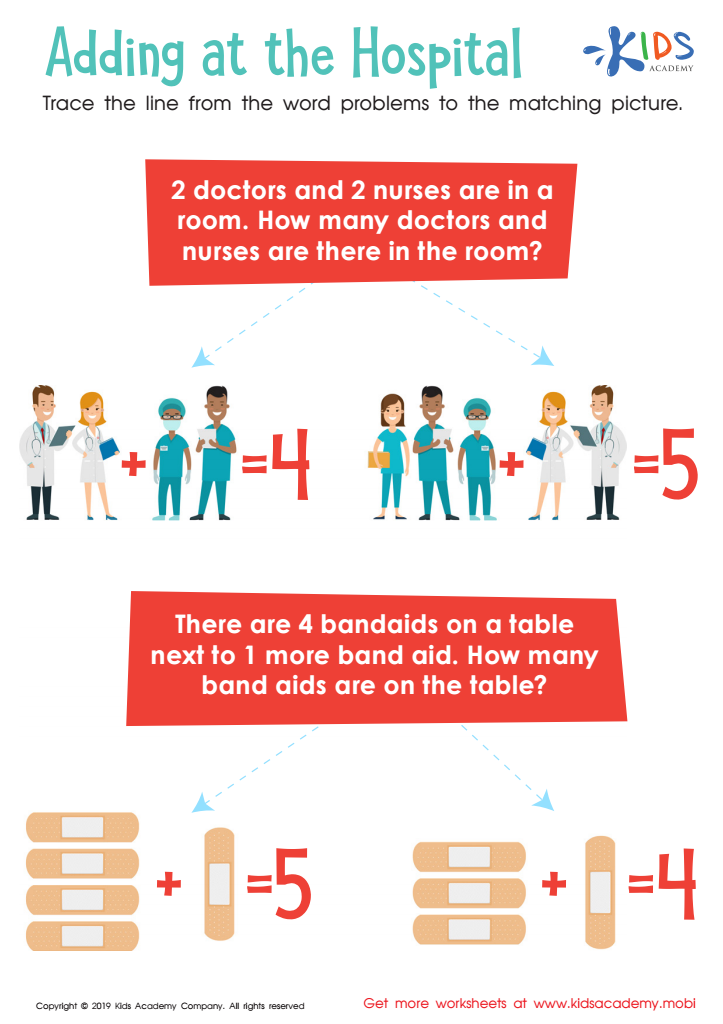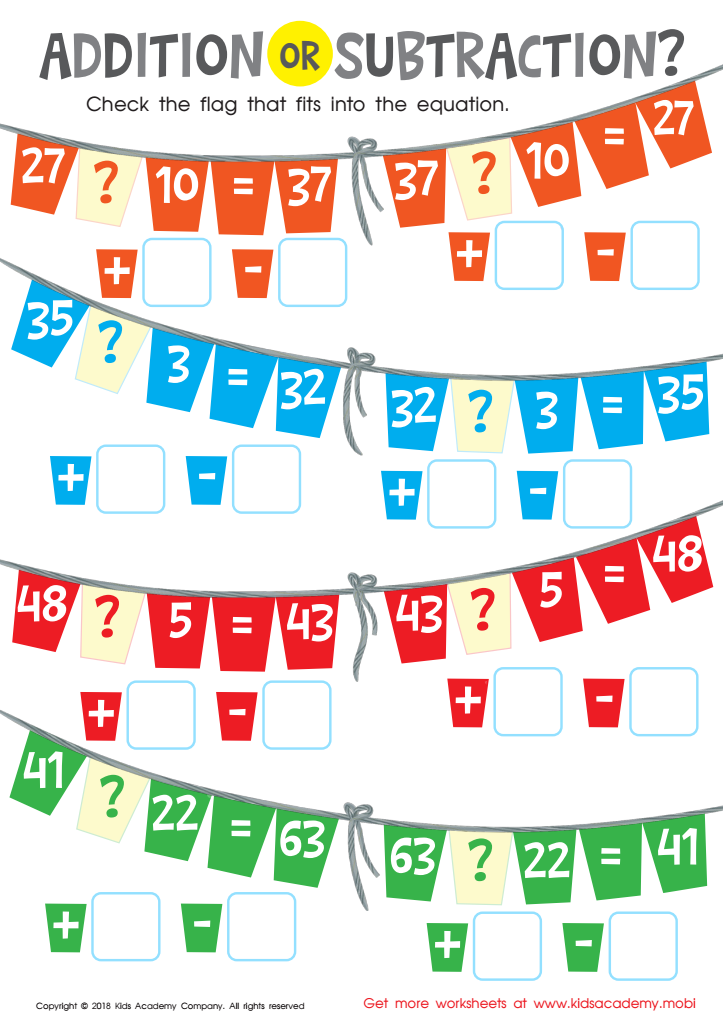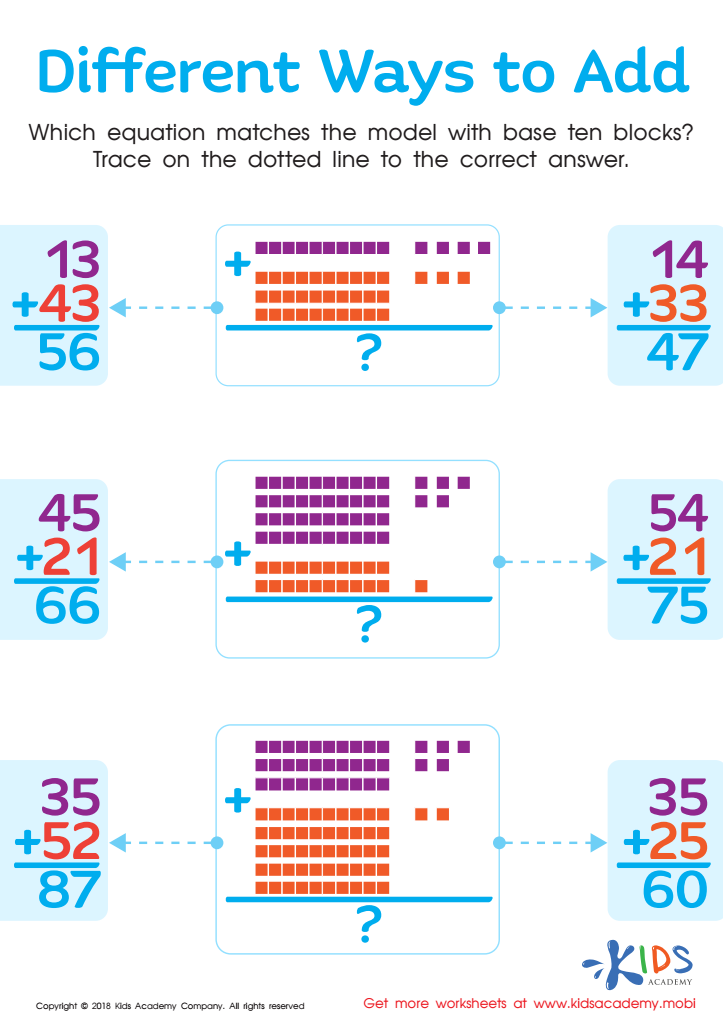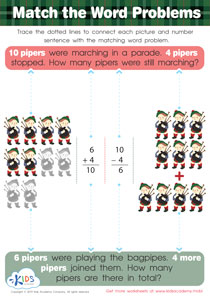Problem-solving abilities Normal Addition Worksheets for Ages 7-9
3 filtered results
-
From - To
Enhance your child's problem-solving abilities with our Normal Addition Worksheets designed for ages 7-9! These engaging worksheets provide a fun and interactive way to reinforce addition skills while challenging young learners to think critically. Each worksheet features a variety of problems that encourage kids to apply their addition knowledge in real-world scenarios, fostering mathematical understanding and confidence. Perfect for at-home practice or supplemental learning in the classroom, our worksheets cater to diverse learning styles and help build a solid foundation in mathematics. Equip your child with essential problem-solving skills today! Start exploring and unlock the joy of learning through addition.


Adding at the Hospital Worksheet


Addition or Subtraction? Worksheet


Different Ways to Add Worksheet
Parents and teachers should prioritize problem-solving abilities in normal addition for children aged 7 to 9, as it forms a foundational skill crucial for academic and daily life success. At this age, children are developing their cognitive abilities, and mastering addition enhances their logic and critical thinking skills. Problem-solving encourages students to approach mathematical challenges creatively and patiently, offering a safe space for mistakes and learning reinforcement. This results in improved self-esteem and resilience, essential qualities that benefit children's overall development.
Moreover, strong problem-solving skills in math can lead to greater achievement in later educational stages, as math concepts become increasingly complex. Mastery of basic addition empowers children to tackle subtraction, multiplication, and division with confidence.
Engaging students in real-world problem-solving scenarios fosters application of these math skills outside the classroom, reinforcing their relevance and importance. It helps prepare children for future academic endeavors and everyday situations, such as budgeting or planning activities. By caring about and nurturing problem-solving abilities in normal addition, parents and teachers are equipping children with tools that will serve them throughout their lives, both in educational contexts and in the wider world.
 Assign to My Students
Assign to My Students







.jpg)













